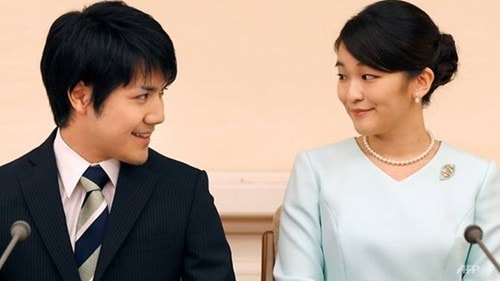Japanese princess gives up royal title, engages to commoner
Japan's Princess Mako and her fiancé - a commoner - announced their engagement on Sunday (September 3).
Japan's Princess Mako and her fiancé, a commoner, announced their engagement on Sunday (September 3). Their eventual marriage will require the princess to give up her royal title, under a law that emphasizes the male-dominated nature of Japan's monarchy.
Like all other female members of the royal family, Princess Mako, the eldest granddaughter of Emperor Akihito, will have to exchange her royal status to marry a commoner. However, this rule does not apply to royal males.
 |
| Princess Mako. Photo: Getty |
At a televised press conference held to announce the engagement, the princess shared that she felt "very happy."
"I knew from a young age that I would give up my royal title when I married," she shared. "While I will continue to support the Emperor and fulfill my duties as a royal to the best of my ability, I also value my private life just as much."
The princess's fiancé, Kei Komuro, a 25-year-old law firm employee who won a tourism promotion contest and the title "Prince of the Sea", said he proposed to the princess three years ago.
He described Princess Mako as someone who always silently watches over him "like the moon." The princess compared her fiancé's smile to "warm as the sun."
 |
| Japanese Princess Mako and her commoner fiancé Kei Komuro. Photo: AFP |
The engagement announcement was originally planned for July, but the couple decided to postpone it due to the prolonged heavy rains and flooding in southern Japan that month.
An official from Japan's Imperial Household Agency said the princess's wedding will be held in the summer of 2018.
Princess Mako, 25, is the eldest daughter of Prince Akishino, the second son of Emperor Akihito. The law that strips princesses of their royal titles upon marriage does not apply to male members of the imperial family: Emperor Akihito and both of his sons married commoners, and their current brides are all members of the imperial family.
News of the engagement has sparked a heated debate over whether the law should be changed so royal women can continue to keep their titles.
That could increase the number of potential male heirs to the royal family, which does not allow women to sit on the Chrysanthemum Throne.
Traditionalists, including Prime Minister Shinzo Abe, strongly oppose the change, despite Japan having been ruled by several female emperors in previous centuries.
In June, Japan's parliament passed a law allowing 83-year-old Emperor Akihito to abdicate in favor of his eldest son, Crown Prince Naruhito. Akihito's retirement will be the first royal abdication in more than two centuries.
The move would also move the crown prince's younger brother, Prince Akishino, into second place in line to the throne. Akishino's son, Hisahito, would be third.
According to Kienthuc.net.vn
| RELATED NEWS |
|---|

